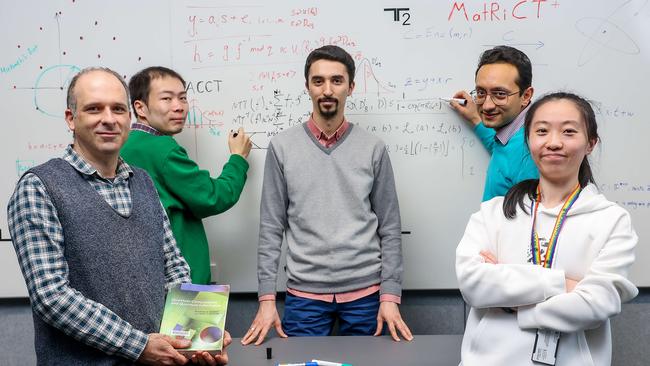‘Deteriorating’ cybersecurity leaves Australia vulnerable as threat of quantum computers looms
Cybersecurity experts have sounded the alarm over what they are calling ‘Q-Day’ - a time when advancements in quantum computing would make life easier for would-be hackers. Here’s why.
NSW
Don't miss out on the headlines from NSW. Followed categories will be added to My News.
Cybersecurity experts have warned Australia is quickly approaching “Q-Day”, where advances in quantum computing technology will allow hackers to access people’s data which is currently inaccessible to criminals, with calls on Prime Minister Anthony Albanese to improve the nation’s cybersecurity defences.
Q-Day is described as the point when a quantum computer can brush past all the current encryption used to protect data and infrastructure, potentially exposing data used in online banking data to personal emails.
“If proper safeguards are not put in place (before Q-Day), this pretty much would affect every user of technology” said Dr Muhammad Esgin from Monash University.

Hackers could also potentially reach back and compromise the data of today in the future through a technique known as “harvest now, decrypt later”, a strategy that opposition cybersecurity spokesperson Senator James Paterson is concerned the Albanese government has not prepared for.

“We need to recognise that quantum computing could also have significant privacy and security implications retroactively,” Senator Paterson said.
“Large troves of sensitive encrypted information that have already been stolen but are currently unreadable (could) be cracked open overnight by a sufficiently advanced quantum computer.”
According to the Department of Home Affairs in 2022 to 2023, there was one cyber incident reported every six minutes.
Former political adviser and musician Marty Breen was a victim of both the Medibank and Optus data breaches in 2022.
“There is no evidence that Medibank had the competence to protect us, so it must fall to the government to act,” Mr Breen said.
Greens Senator and Digital Rights Spokesperson David Shoebridge echoed this concern.
“Attacks are becoming more common and the responses, both corporate and government, have not addressed the scale or the urgency of the problem.”
“There is a very real prospect that all of our existing digital defences could be knocked over with a single powerful reform in quantum computing” Senator Shoebridge said.
The Department of Home Affairs claimed the risk of cyber attacks is on the rise, describing the cyber threats environment as “deteriorating”.
“Australia continues to be actively involved in the development of standards for post-quantum cryptographic algorithms,” a Home Affairs spokesperson said.
More Coverage
Originally published as ‘Deteriorating’ cybersecurity leaves Australia vulnerable as threat of quantum computers looms
Read related topics:Anthony Albanese





